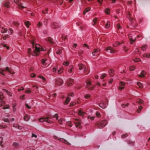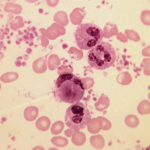A new measurement tool could mean big changes for the treatment of rheumatoid arthritis (RA). With funding from the Rheumatology Research Foundation, Gregg Silverman, MD, led a study that developed a means for the measurement of immunologic memory in autoimmune disease. This new tool will allow rheumatologists and investigators to measure the immunologic defects that are the actual cause of a patient’s RA and evaluate the effectiveness of treatment.

Dr. Silverman
“The tool developed in our Foundation-funded project measures the immunologic defects that actually cause rheumatoid arthritis. By measuring the number of autoimmune B cells in someone’s immunologic memory, we can now look at the underlying cause of the disease and evaluate the effectiveness of treatment,” says Dr. Silverman, professor of medicine and pathology at NYU Langone Medical Center. “This information provides investigators with the street signs they need to see if they are on the right track toward developing a cure. It can be applied to evaluate new, as well as existing, RA medications, which can help guide the development of a cure or the treatment of individual patients. It also can be adapted to measure other diseases caused by problems with B cell autoimmune memory, such as lupus.”
Dr. Silverman’s work was funded in part by the Foundation’s Innovative Research Award. The award provides independent investigators with the funding they need to pursue ideas that could lead to breakthroughs in discovering new treatments and cures. Dr. Silverman says the funding was crucial to the project. “The funding that I received from the Foundation allowed my team to develop this new tool, which we hope will improve the way investigators search for a cure.”
The impact of Dr. Silverman’s work could benefit patients, investigators and physicians by providing new avenues for testing and treating the disease itself, as opposed to combatting symptoms alone. “Being a practicing rheumatologist, I am very concerned about the welfare of my patients, and I believe we can’t be complacent. We have to keep working toward better treatments and a cure,” says Dr. Silverman. “That is what this study is all about, and that is what the Rheumatology Research Foundation is all about.”
The study, “Persistence of Disease-Associated Anti-Citrullinated Protein Antibody-Expressing Memory B Cells in Rheumatoid Arthritis in Clinical Remission,” was published in Arthritis & Rheumatology in June.


